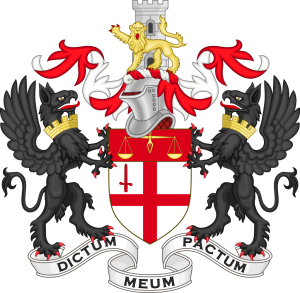What is the FTSE?
The FTSE stands for the Financial Times Stock Exchange and it is an index of shares listed on the London Stock Exchange. There are several different FTSE indices, the most commonly used one being the FTSE 100, the largest 100 companies by market capitalisation listed on the London Stock Exchange. Lots of investors and pension funds in the UK are invested into FTSE 100 companies and FTSE 100 tracker funds, such as ETFs.
Why might the FTSE and the London Stock Exchange be finished?
Not finished entirely, but the London Stock Exchange might be finished as a serious global competitor to the large American exchanges, the New York Stock Exchange and the Nasdaq, at least temporarily. Therefore, FTSE 100 index trackers, and UK listed stocks in general, have lost some of their appeal. What is the evidence for this? Let’s analyse the performance of the FTSE 100 index compared to following stock indices:
- S&P 500, the largest 500 stocks listed in the United States (on the New York Stock Exchange or Nasdaq)
- CAC 40, the largest 40 stocks listed in France
- DAX, the largest 40 companies listed in Germany
- Euronext 100, the largest 100 stocks listed on Euronext Group exchanges (France, Italy, Netherlands, Norway, Belgium, Ireland and Portugal).
Five-year stock market performance
As you can see from the above graph, the FTSE 100 has only grown by 5.98% over the past five years, compared to 77.94% for the S&P 500 and at least 40% for its European competitors.
What about market capitalisation?
The London Stock Exchange used to be one of the world’s largest by market capitalisation (the total value of all of the companies listed on its exchange). However, if we look at the largest stock exchanges by market capitalisation, we can see that London only ranks at 9th, just above Canada as of December 2023:
Are there other signs that the London Stock Exchange is struggling?
Yes, some companies are now delisting from the London Stock Exchange in favour of its competitors. The London Stock Exchange also has IPO drought (new companies joining the exchange) and trading volumes are low.
What does all of this mean for investors?
Without giving investment advice in an article, the argument for investing into the London Stock Exchange FTSE indices, rather than other international stock indices, used to be for the lower exposure to currency risk for UK-based investors, but considering the performance over the past five years, it is arguable that currency risk no longer justifies investing the majority of a portfolio into the FTSE 100. However, it still may make sense to invest into FTSE indices in order to diversify your portfolio. There is also an argument that UK stocks are currently good value and that many of the companies have a strong dividend record.
How can Aisa International help you?
We are regulated to offer investment advice and discretionary portfolio management in many European countries, including France. You can contact us for a conversation.
The views expressed in this article are not to be construed as personal advice. Therefore, you should contact a qualified, and ideally, regulated adviser in order to obtain up-to-date personal advice with regard to your own personal circumstances. Consequently, if you do not, then you are acting under your own authority and deemed “execution only”. Additionally, the author does not accept any liability for people acting without personalised advice, who base a decision on views expressed in this generic article. Importantly, this article is dated and is based on legislation as of the date. It should be noted that legislation changes, but articles are rarely updated. Sometimes a new article is written; so, please check for later articles. Additionally, check for changes in legislation on official government websites. Finally, this article should not be relied on in isolation.







